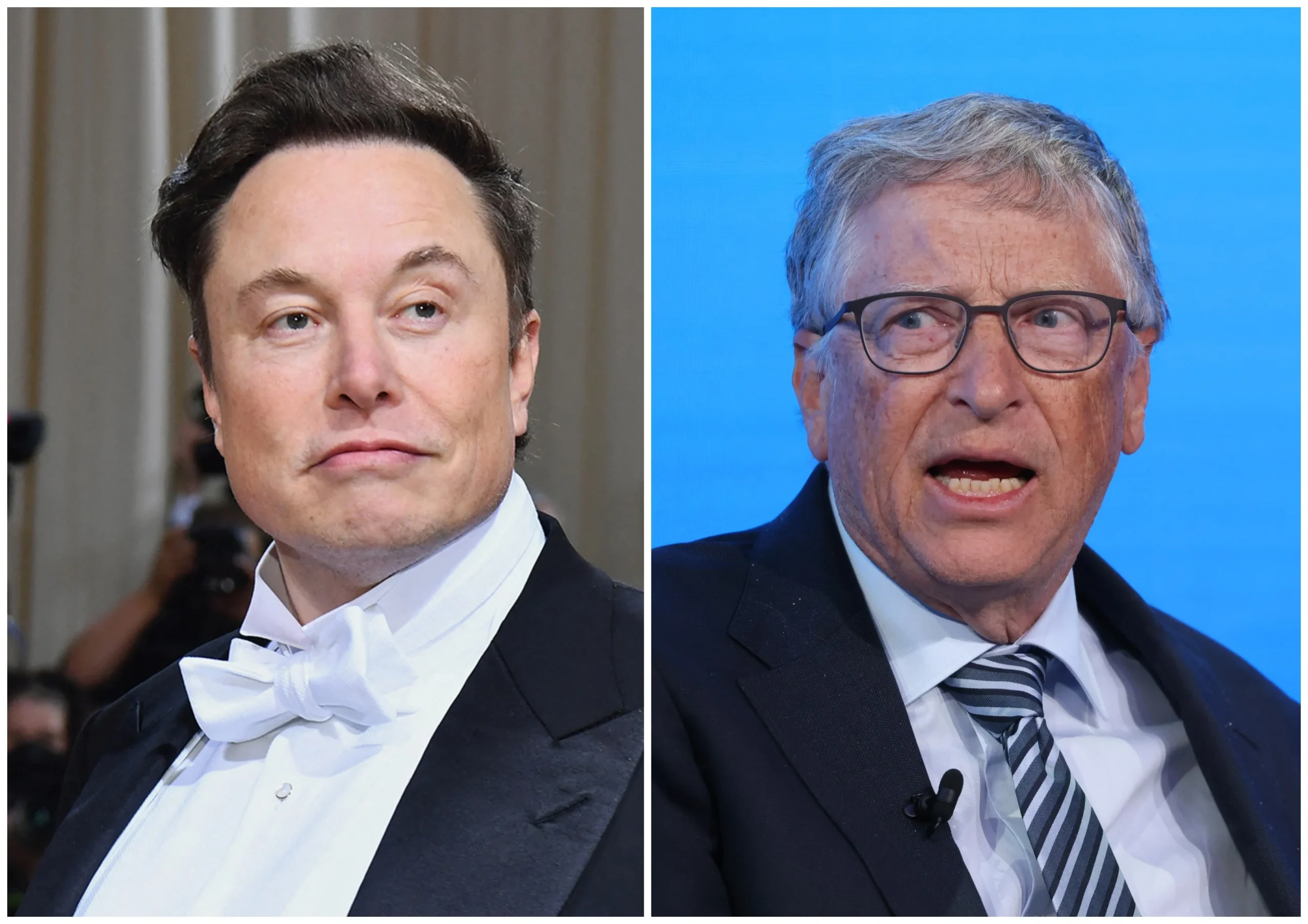On Thursday, Bill Gates sharply criticized Elon Musk while announcing a sweeping philanthropic plan to give away nearly all his personal wealth over the next two decades. The Microsoft co-founder and longtime philanthropist pledged that the world’s poorest would receive an estimated $200 billion through the Gates Foundation by 2045 — a move he framed as urgent amid widespread global aid cuts.
In an interview with the Financial Times, Gates took direct aim at Musk, the world’s richest man and head of the Department of Government Efficiency under President Donald Trump. “The picture of the world’s richest man killing the world’s poorest children is not a pretty one,” Gates said, accusing Musk of playing a central role in slashing the U.S. foreign aid budget. He pointed to the department’s dismantling of the U.S. Agency for International Development (USAID), a critical funding source for vaccines, emergency food assistance, and global health aid.
Gates and Musk were once aligned on philanthropy, but the relationship has since soured. While Gates is accelerating plans to divest nearly all of his wealth and shutter the Gates Foundation by December 31, 2045, Musk’s tenure in the Trump administration has drawn sharp rebuke from humanitarian leaders, with Gates now among the most vocal critics.
“People will say a lot of things about me when I die, but I am determined that ‘he died rich’ will not be one of them,” Gates wrote on his personal website, adding, “There are too many urgent problems to solve for me to hold onto resources that could be used to help people.”
Gates announced on the 25th anniversary of the Gates Foundation, which he co-founded with Melinda French Gates in 2000. Since then, the organization has distributed $100 billion to causes including the Global Fund to Fight AIDS, Tuberculosis and Malaria, and the Gavi vaccine alliance. It is expected to ramp up spending to $9 billion annually by 2026.
In his statement, Gates voiced concern that leading donor nations — including the United States, Britain, and France — were retreating from their commitments to global aid, especially under Trump’s administration. Despite praise for some African governments that have attempted to fill the void, Gates emphasized that continued U.S. support was critical to eradicating diseases like polio.
Gates reaffirmed his focus on stopping preventable deaths among children and mothers and combating poverty and disease. He also acknowledged criticism that the Gates Foundation wields disproportionate influence in global health and operates with limited accountability.
Recently, Gates has held talks with Trump urging continued investment in international development. “I hope other wealthy people consider how much they can accelerate progress for the world’s poorest if they increased the pace and scale of their giving, because it is such a profoundly impactful way to give back to society,” he concluded.






